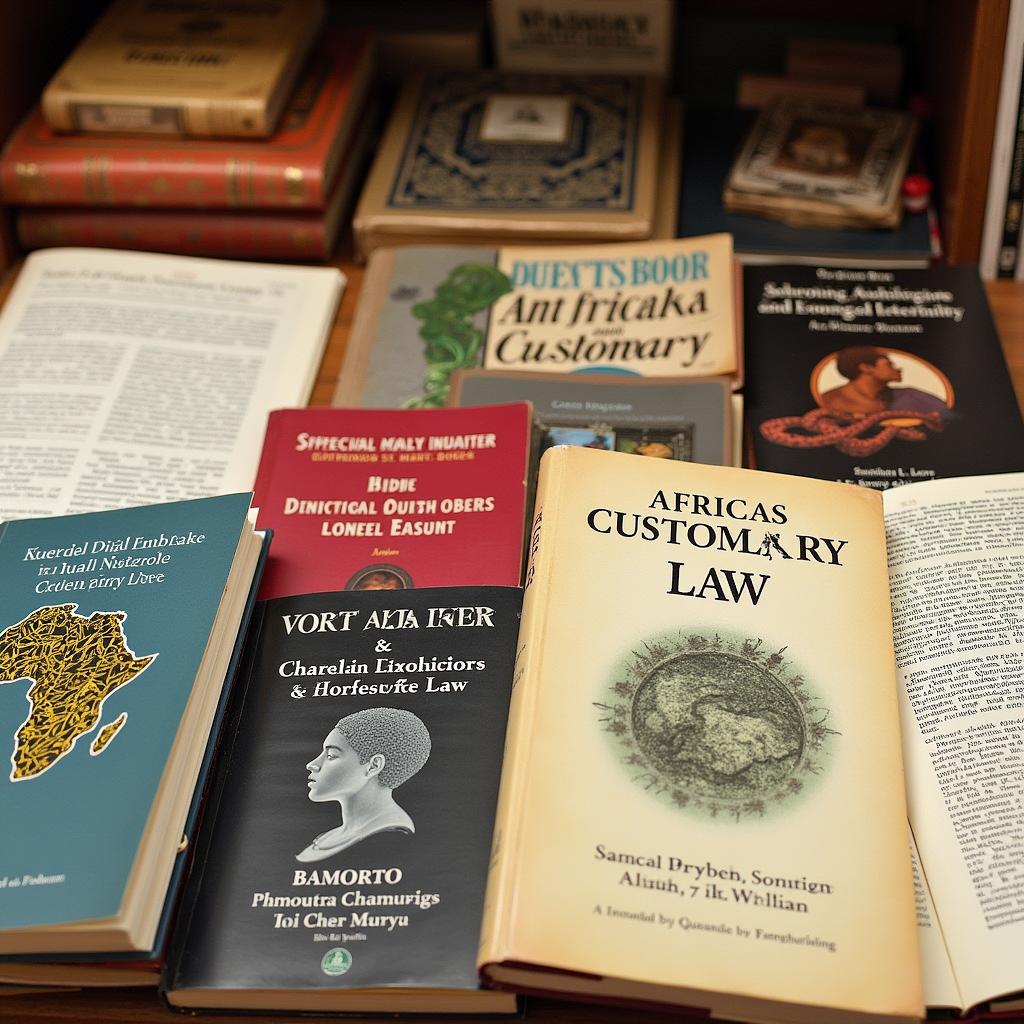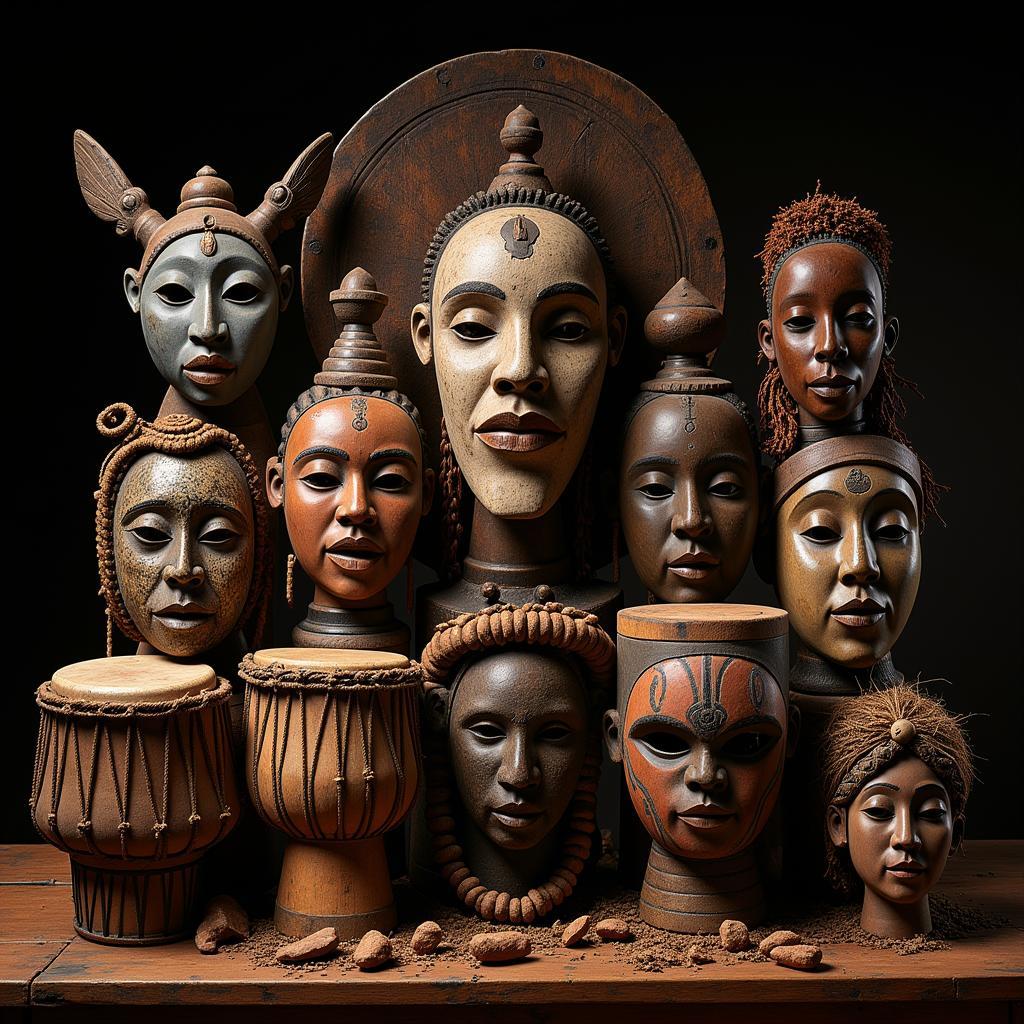African Customary Law: A Comprehensive Guide with PDF Resources
African customary law is a fascinating and complex system of legal principles and practices that has been shaped by centuries of tradition and cultural evolution. It plays a vital role in many African societies, regulating aspects of life from family matters and inheritance to land ownership and dispute resolution.
This comprehensive guide aims to provide a clear understanding of African customary law, its historical roots, key principles, and its relevance in modern society. We will explore the diverse applications of this legal system across various African nations and examine its interaction with modern legal frameworks.
Understanding the Roots of African Customary Law
African customary law is not a monolithic system, but rather a diverse tapestry woven from the unique traditions and practices of countless indigenous communities across the continent. Its origins can be traced back to ancient times, evolving over generations through oral transmission, social customs, and shared values.
Key Characteristics of African Customary Law
- Oral Tradition: Customary law is often passed down through generations through oral narratives, stories, songs, and proverbs.
- Community Focus: Emphasis is placed on collective well-being, consensus, and the importance of community norms and values.
- Flexibility and Adaptation: Customary law is dynamic and adaptable, evolving to reflect changing social conditions and needs.
- Diverse Applications: Its application varies across communities, reflecting their specific cultural practices, beliefs, and social structures.
The Core Principles of African Customary Law
While African customary law varies across regions, there are some core principles that are commonly shared:
- Custom as Law: Legal norms and principles are derived from established customs, practices, and beliefs.
- Role of Elders and Chiefs: Elders and chiefs often play significant roles in interpreting and administering customary law.
- Family and Kinship: Family and kinship ties form the foundation of many customary legal systems.
- Land Rights and Ownership: Customary law often governs land use, ownership, and inheritance.
The Role of African Customary Law in Modern Society
In many parts of Africa, customary law continues to play a crucial role alongside modern legal systems. Its principles are often incorporated into national legal frameworks, particularly in areas such as family law, land rights, and dispute resolution.
The Challenges of Customary Law in the Modern Era
- Compatibility with Modern Legal Systems: Balancing the principles of customary law with modern legal frameworks can pose challenges.
- Gender Equality: Some customary law practices may conflict with modern notions of gender equality.
- Globalization and Cultural Change: Rapid cultural change and globalization can impact the integrity of traditional customs and legal systems.
African Customary Law: A Legacy of Wisdom and Resilience
African customary law represents a rich tapestry of legal traditions and practices that have shaped the continent’s history and cultural identity. It continues to be a source of guidance, wisdom, and inspiration for many communities, even as it navigates the complexities of the modern world.
Frequently Asked Questions (FAQ)
1. Is African customary law still relevant today?
Yes, African customary law continues to be relevant in many parts of the continent. Its principles are often incorporated into national legal frameworks, especially in areas like family law and land rights.
2. How does African customary law differ from Western legal systems?
Unlike Western legal systems, which are primarily codified and based on written statutes, African customary law is often passed down through oral tradition and relies heavily on community norms and values.
3. Are there any challenges associated with African customary law in the modern era?
Yes, some challenges include ensuring compatibility with modern legal systems, promoting gender equality, and navigating rapid cultural change.
4. What are some examples of African customary law in practice?
Examples include:
- Inheritance laws: Regulating the distribution of property upon the death of an individual.
- Land ownership: Determining who has rights to use and control land.
- Dispute resolution: Resolving conflicts and disagreements within communities.
5. Where can I find more information about African customary law?
You can explore various resources online, including academic journals, legal databases, and websites dedicated to African studies.
6. What are some important legal frameworks relating to African customary law?
Some significant frameworks include:
- The African Charter on Human and Peoples’ Rights (1981)
- The United Nations Convention on the Elimination of All Forms of Discrimination Against Women (1979)
7. What are some examples of customary law in specific African countries?
Customary law varies across the continent. For instance:
- South Africa: The Recognition of Customary Marriages Act (1998)
- Kenya: The Law of Succession Act (1981)
- Nigeria: The Customary Court of Appeal Act (1956)
This guide provides a foundation for understanding African customary law. To delve deeper, we encourage you to explore further resources and engage with experts in the field.

This article provides a brief introduction to African Customary Law. For further exploration, consider visiting reputable legal databases and academic resources dedicated to African law. If you are interested in learning more about African customary law, we recommend reaching out to experts and scholars in the field.
When you need support, contact us:
+255768904061, [email protected] or Mbarali DC Mawindi, Kangaga, Tanzania. We have a 24/7 customer service team.


